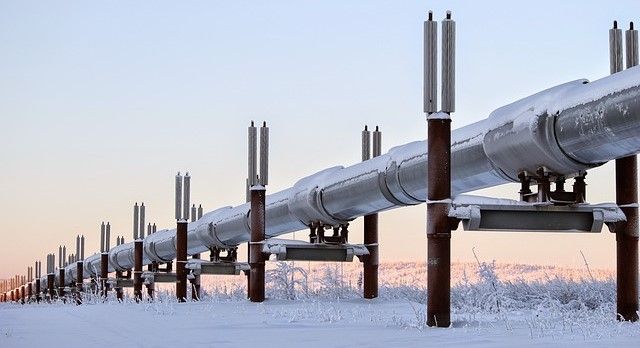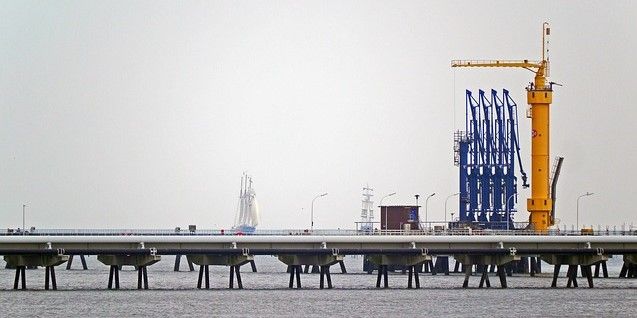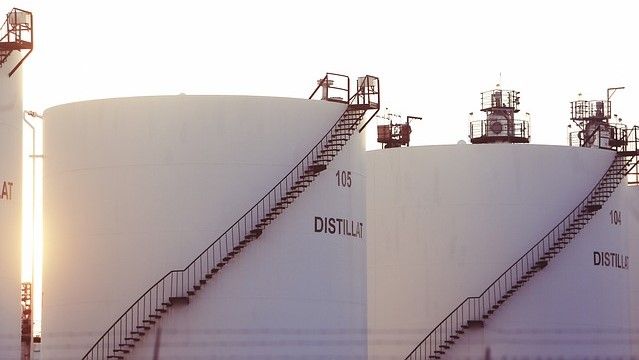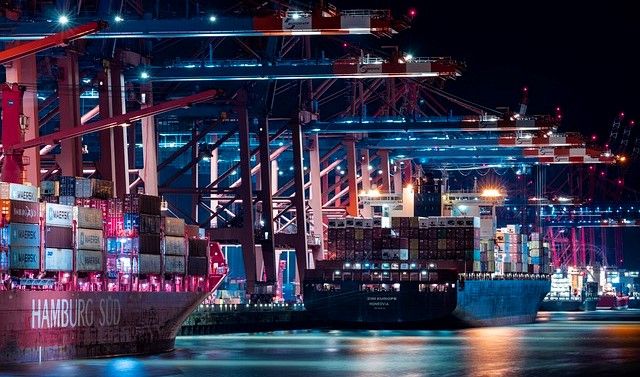It has become clear to many inside the corridors of power in Brussels, that the EU needs a new, unified, and most importantly autonomous policy for the sourcing of raw materials.
It is a policy change being brought on by years of economic growth being limited by oil prices and Europe’s limited natural resources.
Strategic: of great importance within an integrated whole.
Autonomy: the quality or state of being self-governing.
While diplomacy and US military power in the Middle East has been able to secure sufficient oil supplies for several decades, Russia’s invasion in February 2022 sent a shock wave through European capitals as the EU found its industry, residents, and foreign policy held to ransom over its support of Ukraine.
Why the EU Needs a New Raw Materials Policy
The EU’s diplomatic response was clear soon after the war began. It demanded the return of self-governance in Ukraine, as well as the security of Latvia, Estonia and other EU members with borders close to Russia.
Moscow’s response was to threaten to cut off the gas and other raw material supplies to destroy European industry and freeze the population.

This is not the first time that diplomatic relations have been impacted by the threat of reduced raw material supplies. In 2010, China slashed the export quota for rare earth elements by as much as 72% year-on-year to show the world its strategic strength. Yet it completely cut off Japan’s supplies to pressure Tokyo over the release of a detained Chinese fishing trawler captain.
The captain was soon released in what Beijing hailed as a diplomatic victory.
As a result, Japan has now designated “semiconductors, batteries and nine other items as strategically critical material” in an attempt to limit China’s export power.
"This is the first step,” explains Economic Security Minister Sanae Takaichi, “in advancing the resiliency of critical supply chains to safeguard the survival, livelihoods and economic activities of our citizens,"
The EU is now seeing the power it is surrendering to other regions if it cannot maintain the supplies that it needs. This is especially true for the supply of materials for technology, with China controlling nearly 90% of rare earth elements and 60% of the supply of processed lithium.

“Whether we talk about chips for virtual reality or cells for solar panels, the twin transitions [to a digital and NetZero economy] will be fuelled by raw materials,” said European Commission President Ursula von der Leyen in her recent State of the European Union speech. Adding that, “… securing supplies is only a first step. The processing of these metals [rare earths and lithium] is just as critical.”
EU Commissioner Thierry Breton, agrees, noting that, ““Lithium and rare earths will soon be more important than oil and gas. Our demand for rare earths alone will increase fivefold by 2030. […] We must avoid becoming dependent again, as we did with oil and gas. […] We will identify strategic projects all along the supply chain, from extraction to refining, from processing to recycling.”
From this position the EU is forming a new policy of strategic autonomy for sourcing raw materials. For example, by establishing a new European Hydrogen Bank, to “help guarantee the purchase of hydrogen.”

The EU has always thought big. It has enacted huge shifts in policy to create what was once believed impossible – 70 years of peace in Europe, a single market, a customs union, a unified register of industrial chemicals (REACH), a single currency, a united sovereign wealth fund etc.
Simply put, its further goals, such as becoming the first continent to achieve climate neutrality, to build autonomous defence capabilities, and to lead digitalisation, will all be at risk if there isn't the safe and sustainable access to essential raw materials.
The global market is unlikely to be able to meet the fast-rising demand for many of the vital commodities to achieve these goals. China, Japan, South Korea, and the US are all seeking the same products and are making large investments in raw material sourcing and processing to reduce dependency.
Trade diversification alone will be an insufficient tool to meet demand. As already seen, untampered markets have left China with a quasi-monopoly on rare earths and permanent magnets. This has pushed up prices by as much as 90% in the past year alone. It has also allowed raw material supply to become a geopolitical weapon.
The world is experiencing a global race for the supply and recycling of critical raw materials.
Without an EU policy to harmonise strategy, individual industries and companies will act alone to ensure access to the raw materials they need to survive. Last year, Mercedes-Benz and the Volkswagen Group, “signed deals with the Canadian government to secure access to Canada’s large stores of key battery materials such as lithium, cobalt, nickel and graphite, as the German companies compete for scarce supplies of raw materials with other automakers shifting to electric vehicles.”
As German Chancellor Olaf Scholz noted at the signing, “What we are experiencing right now is a perfect storm — a multitude of overlapping and mutually reinforcing global crises.”

To avoid further piecemeal securing of raw materials, the EU has begun revising a number of its programs to include moves towards strategic autonomy.
As Vice-President Šefčovič stated at the European Parliament Plenary on the 2023 Commission Work Programme, “[The EU is putting in place] measures to boost Europe's strategic autonomy on critical raw materials, to help ensure an adequate and diversified supply while prioritising re-use and recycling. [As well as] a targeted revision of the legislation on the registration, evaluation and authorisation of chemicals (REACH) to promote sustainable chemicals.”
Alongside this, the European Critical Raw Materials Act remains at the heart of EU’s plans for strategic autonomy.
The harmonising of vital resource management has already been seen in member state cooperation towards self-dependency of antibiotics. A project that has surged forward following the successful collaboration between EU countries over the COVID vaccine. Although, for now at least, “the data nonetheless indicates that the EU is dependent on imports for its antibiotics.”

However, fears remain that EU-centric cooperation will put off strategic alliances with overseas partners. If full strategic autonomy is allowed over research, raw material supply, defence, etc, then does that restrict investment from British, Japanese, or American sources?
It is also reasonable to say that strategic autonomy goes against the wider ideals of the EU. As Chris M. Haenen, an executive at GE Aerospace responsible government relations, argues, “I understand and appreciate the notion of strategic autonomy. However, if we put too much emphasis on European independence or even autarky, we fail to recognise that on a global level two competing economic systems are being put in place. One is based on democratic values, open trade and the rule of law. The other, on autocracy and coercion. If we want to remain in the lead in key technologies, such as aerospace, we will need to look for close cooperation at an international level between like-minded countries.”
Collaboration outside of Europe is essential if the EU is to achieve its wider goals, such as maintaining the single market, promoting peace and prosperity, preserving culture, promoting scientific and technological progress, climate change neutrality, etc.
Yet despite these arguments, it is clear that Brussels has chosen the route it wishes to take.
As von der Leyen declares, “We will identify strategic projects all along the supply chain, from extraction to refining, from processing to recycling. And we will build up strategic reserves where supply is at risk.”

“Digital solutions will be key in making our economy more efficient and less resource intensive,” notes Šefčovič. “And without critical raw materials, there is simply no green and digital transformation.”
Let’s hope that Europe finds the strategic autonomy that it’s looking for without burning too many bridges with global partners.
Photo credit: Erich Westerndarp on Pixabay, Spencer Davis, Niklas, Leeroy agency, Shibang, Robson Machado, & Svklimkin